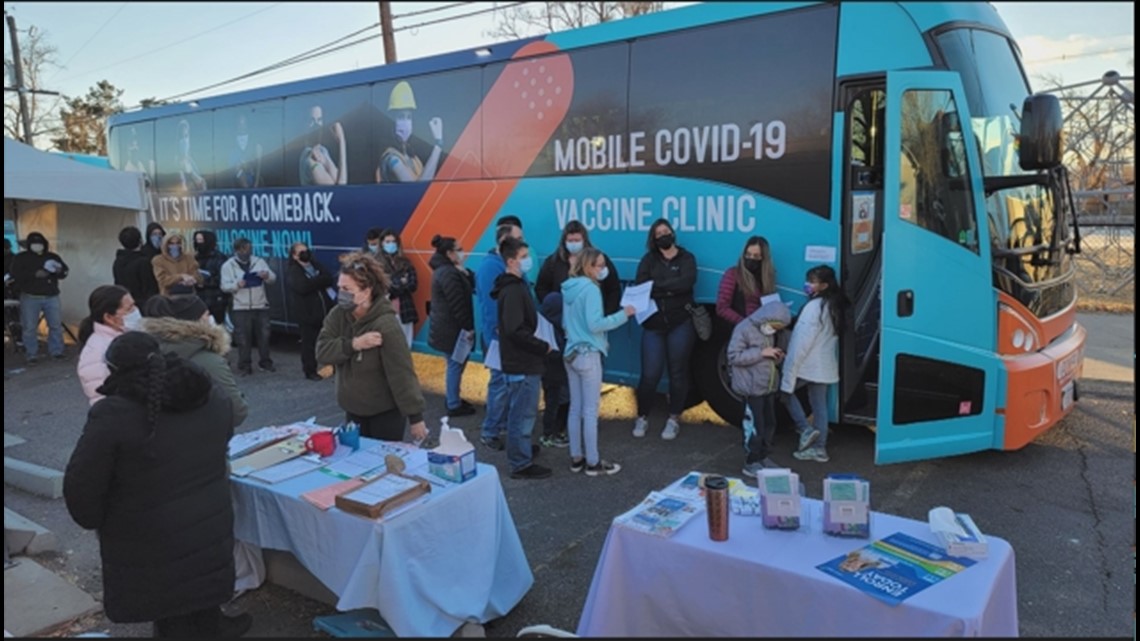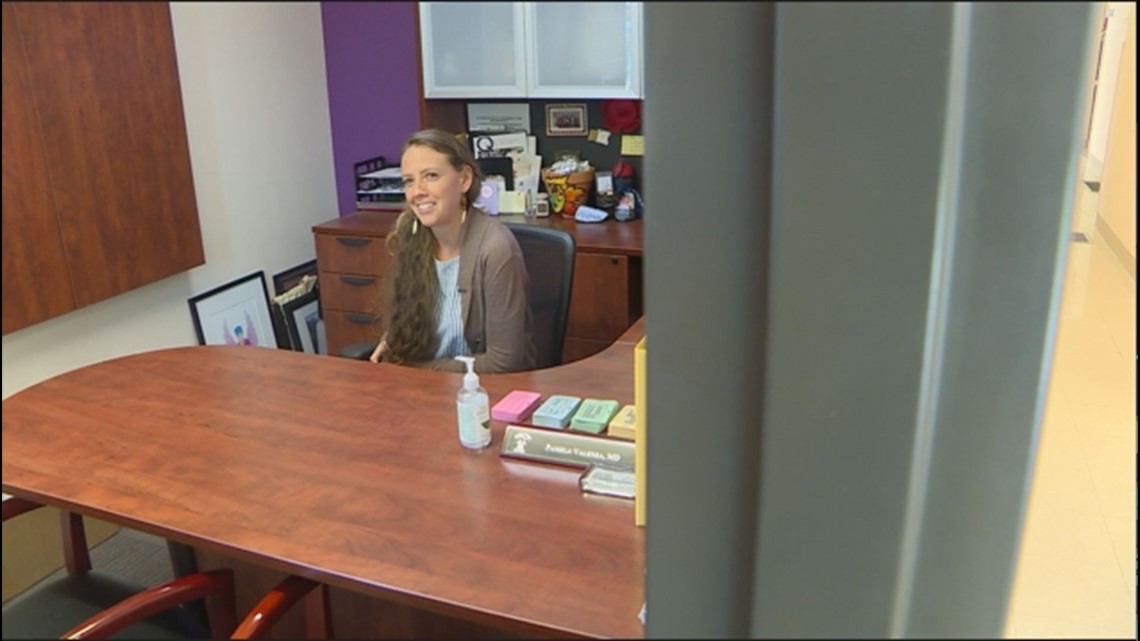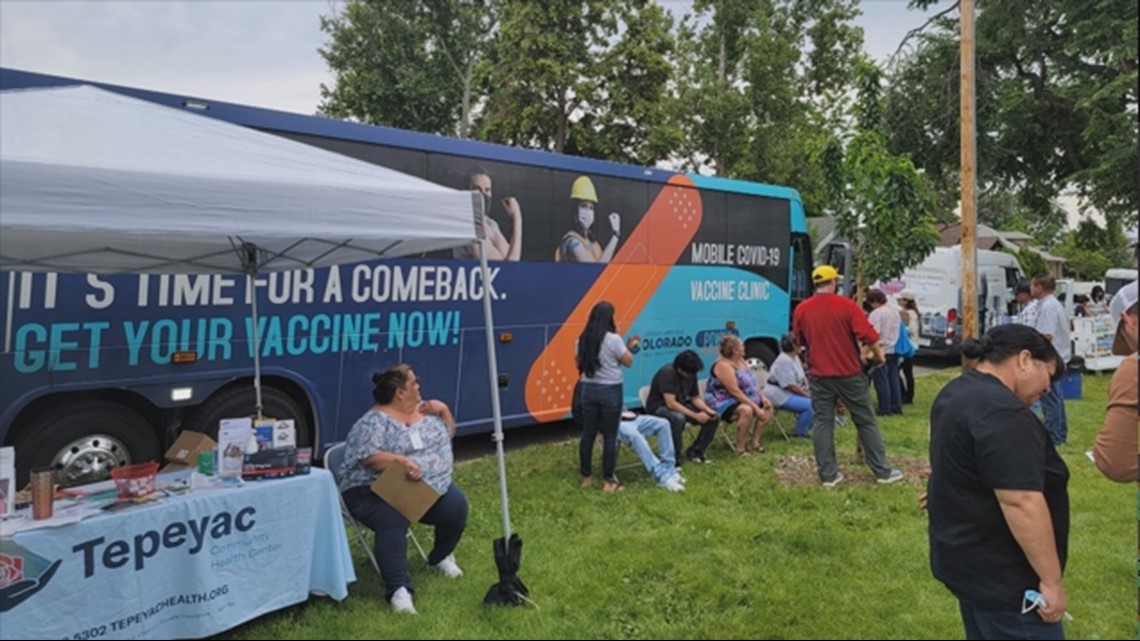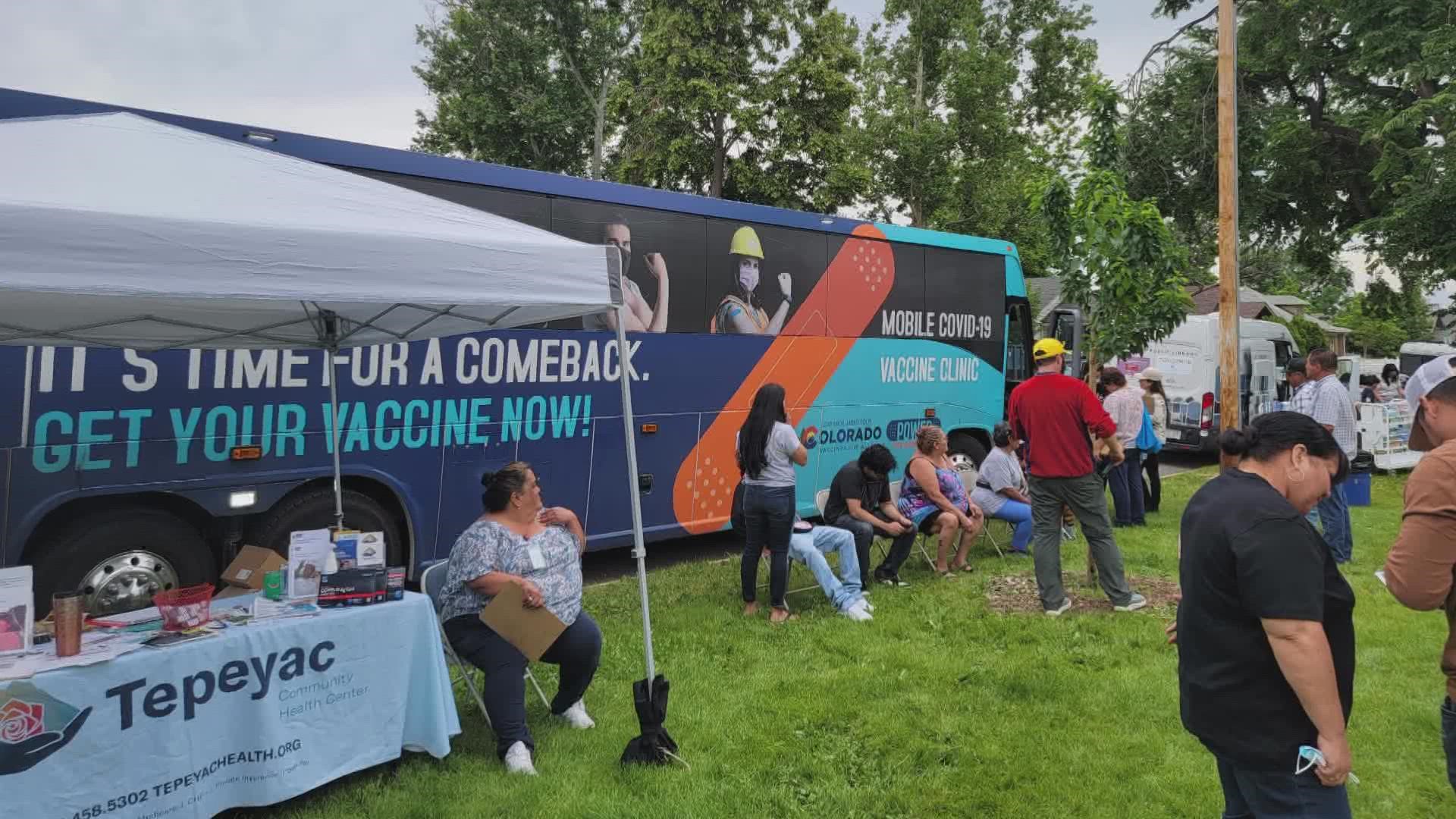DENVER — As eligibility for the COVID-19 vaccine has expanded, one thing has stayed the same in Colorado: the fact that those who are Hispanic or Latino are behind other groups of people for vaccination rates.
Several community groups, nonprofits and the state health department have worked to provide access to the vaccine for hard-to-reach communities.
That includes Globeville-based Tepeyac Community Health Center, who is still hosting community vaccine clinics with help from the Colorado Department of Public Health and Environment.
"We have seen the volume taper down quite a bit," said Dr. Pamela Valenza, the chief health officer for Tepeyac.
Their last clinic was on Friday July 8. Tepeyac said around 41 people received a dose.
"We were running a mobile vaccine bus once a week in addition to vaccinating in our clinic six days a week. And so we have pushed that mobile vaccine bus back to just once a month since we did see those numbers start to trickle down," Valenza said.
Despite this, Valenza said their teams are working to meet the community where they are to inform them about the vaccine itself, and where to get it.
"...at health fairs, at local nonprofit organizations, at the supermarket, really getting involved in that conversation around vaccine events," she said.


A continuing gap
The large gap between Hispanic people and non-Hispanic people who are getting vaccinated has persisted for several months.
According to Denver Department of Public Health and Environment (DDPHE), 45.2% of Hispanic people 5 and older in Denver County have completed doses of the vaccine, compared to 80.5% of white, non-Hispanic people as of July 11.
A similar gap is shown through Tri-County Health's data, with Hispanic people at the lowest rate of vaccination for COVID-19 in Adams, Arapahoe and Douglas counties when it comes to tracking the rate by race and ethnicity.
"It's a big difference," said Valenza. "I think it's really understanding from community members who are embedded in those community, understanding the pulse of what's going on."
Tackling hesitancy and other barriers
Valenza said her team did a a lot of work ahead of time from when the vaccine would be available to children that are 6 months or older.
"And we heard a lot of hesitation from families, just about if they were not sure, they weren't sure if they wanted to vaccinate their children or what that would be," she said. "When we did our own community surveys out in the neighborhoods, out in the grocery stores, and we saw a little bit more hesitancy for an individual who would maybe be more likely to vaccinate themselves as an adult, but a little less likely to vaccinate their child."
She said there's hesitation from many of her adult patients who are more hesitant to get the booster, or more doses if they're not fully vaccinated because of the jobs they have.
She explained that the side effects are a deterrent, because many of the patients they see have jobs they can't afford to miss - many of which are frontline or blue collar positions.
"And so when a when a patient has the choice of going to work and getting the income from that day or missing that work for the vaccine, the large majority of patients who I see who are declining the vaccine are ones who say, 'no, I can't miss work' or 'I don't want to get sick' and 'I need to schedule that at a time where I'm not going to miss work'," Valenza said. "That's still a problem. We've seen that from the beginning of the pandemic when vaccines were available."
Since the start of the pandemic, she estimates they've vaccinated around 10,000 people overall.
A recent communication survey they conducted in how Spanish speaking community members receive their information about health found one of the highest mediums was through radio.
Overall, Valenza said she believes part of the solution lies in outreach, while another part lies in understanding the ever-changing views surrounding the vaccine.
"We know that this is still really impacting the community. This is still impacting our patients," she said of the pandemic as a whole.
Tepeyac's next vaccination clinic will be held Friday July 22.


CDPHE said in a statement that their data analysts have been working to create tools that will help them identify a location down to the census tract level where they have not reached members of the Latino/a/x community.
"From the outset of the state’s pandemic response, our priority has been ensuring equitable access to the vaccine," a spokesperson for the department wrote. "We know systemic barriers and inequities involve a complex interplay of history, policy, systems, services, and structures across all sectors. The pandemic has shone a spotlight on the inequities that have existed long before COVID-19, and it has helped us develop more effective strategies to reach these populations."
Right now, they have 10 mobile vaccination units that each operate six days a week, totaling a minimum of 60 clinics/week, the department said.
Recently they have been focusing on monkeypox vaccines but will resume COVID-19 vaccine clinics sometime in the coming weeks.
The department said they use a multi-layered approach to reach Spanish-speaking Coloradans, including through Spanish media, and Spanish ads on social media platforms.
The Champions for Vaccine Equity Initiative, which originally educated and supported communities making decisions about getting the flu vaccine, adopted a new focus on COVID-19 vaccines, the department said.
"The goal of this program is to meet people where they are and share accurate information to empower them to make decisions that are best for them and their families," a statement read in part. "The program utilizes promotoras, service providers, and crisis counselors to provide information to communities of color about the safety and efficacy of vaccines."
The department also says that the state does not require government issued ID or documentation to receive a COVID-19 vaccine in Colorado.


Adelante Community Development, a Commerce City-based nonprofit is continuing to host nearly-weekly vaccine clinics at the Mile High Flea Market.
Other efforts groups, like Servicios De La Raza, have also been working to raise the vaccination rate among Latinos.
SUGGESTED VIDEOS: COVID-19 Coronavirus

